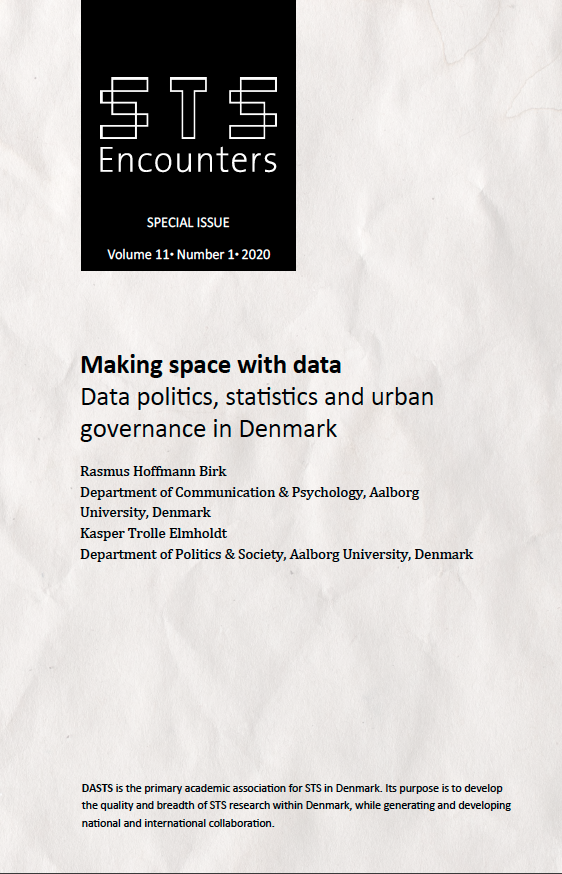Making space with data
Data politics, statistics and urban governance in Denmark
DOI:
https://doi.org/10.7146/stse.v11i1.135278Nøgleord:
urban governance, data politics, state, space, spatializationResumé
In this article we engage with the contemporary data moment by exploring how particular data practices – consisting of census data and statistics - have become embroiled in the making of urban space and governance in Denmark. By focusing on the controversial case of Danish “ghettos” - a state-sanctioned list of marginalised urban areas– we show how Danish data practices of routinely collecting and aggregating extensive census data have become central to ascribing particular urban neighbourhoods as ghetto areas. These data practices spatialise residential housing areas as problematic and influence Danish urban governance. We explore how new forms of data practices for monitoring urban areas arise, and argue that these practices help to maintain the spatialisation of the “ghetto list”. They do so by drawing multiple forms of data together, that visualise and monitor “at risk” areas making them governable and amenable to physical changes. Finally, we show how the state uses data practices to make citizens (and municipalities) accountable; yet, this accountability cuts both ways, as citizens and municipalities also use data to hold the state accountable. We end with a discussion of how our analysis of data practices has implications for how we imagine the scalar hierarchy of the state and the politics of data.

Downloads
Publiceret
Citation/Eksport
Nummer
Sektion
Licens

Dette værk er under følgende licens Creative Commons Navngivelse – Ikke-kommerciel – Del på samme vilkår (ShareAlike) (by-nc-sa).
Starting with volume 15, articles published in STS Encounters are licensed under Attribution-NonCommercial-ShareAlike 4.0 International (CC BY-NC-SA 4.0). The editorial board may accept other Creative Commons licenses for individual articles, if required by funding bodies e.g. the European Research Council. Previous articles are not licensed under Creative Commons. In these volumes, all rights are reserved to the authors of the articles respectively.




